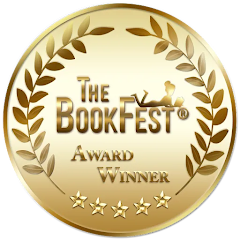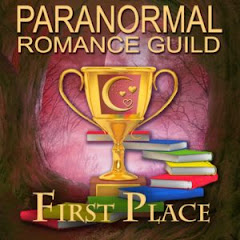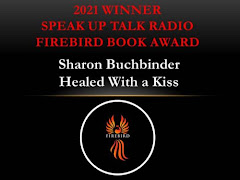What made you decide to be an author? In the beginning, the choice to become an author wasn’t a conscious one. I had a particularly bad day at work, the kind that makes you reassess your career choice. Everyone has those days, the kind of day that really makes to reflect on what you were thinking when you decided to be a … It doesn’t matter how you finish that sentence. The funny thing is I can’t remember what it was that had me so upset, but certainly then it was earth-shattering. I remember thinking on my way home, “What if I quit my job, and ran away from home?” I never meant to follow through with the idea; it was a fantasy. Everyone has them or so I’m led to believe, and at this moment in time this was my fantasy…quitting my job. The other part was a reaction to not wanting to go home, even in my fantasy world, to tell my family that I quit. I didn’t quit. I am still at the same job, and I truly love being a teacher. I just had a bad day.
But at the time being the responsible person I am, I did the next best thing. I closed the door to my office, sat in front of my computer, opened a Word document, and typed, “I’ve quit my job, and ran away from home,” in quotation marks. For two years, this was the first line of my secret manuscript. I went out to buy a USB the next day, and transferred all evidence of this document to it. I was perfectly happy keeping it secret, until I overheard a conversation between two colleagues at work. That conversation was about a middle grade book one of the teachers was writing. I listened, asked questions, and became comfortable enough to venture forth that I too was writing a novel. The resulting shift in the conversation, and their genuine interest gave me the courage to tell my family.
When I told my husband and my parents, they weren’t shocked. Apparently, I was the one who needed to be told I was already a writer.
What do you like best about being a writer? What do you like the least? I love writing. I love the writing process—using words to craft worlds, develop characters, honing scenes until they shine, and being surprised at the speed in which I write and the turn of events when I'm in the mode. The finished product is a thing of beauty when it is just my own. This is where my anxiety lays, that little piece of my soul that is revealed through my writing turns into a vulnerable, shaking, naked thing under the scrutiny of all others upon release into the world.
How do you think your life experiences have prepared you for writing? I started journal writing before high school as a cathartic exercise. I used it as a way to deal with my feelings about my physical handicap, partial paralysis from a stroke when I was four years old, and the reactions other people had to me. I didn’t see myself as handicapped, probably because I dealt with it for all of my life, and it made me angry when people treated me as feeble and dim-witted. It still does. I destroyed the entries as soon as I wrote them. My parents saw me write, but I don’t think they knew the extent of my writings. It would have made them cry, and they have cried enough. Parental worry can only be fully realized once one becomes a parent themselves. My children are healthy and sound thankfully, but the worry is very real. It has led to many a sleepless night and feelings of utter helplessness. I wouldn’t give my parents more of a reason to worry over me.
I thought myself a writer before I entered high school, but it was intensely personal. It wouldn’t be until many years later when I was finishing up my studies for my Master’s degree and teaching certificate at Rutgers University that I shared my work with anyone. I had to take a summer writing seminar as a requirement for graduation. Half the day, we were allowed to go where we pleased, to write. I had a particular spot on the quad where I’d like to sit and write. I wrote about my children, my dogs, my parents; I made up stories for passing students on their way to class. It was peaceful, a part of my hectic day that I was required to be reflective, a time I could take to be by myself and not feel guilty because I was away from my young children and other familial obligations. The second half of the day was for sharing and critiquing. This was daunting, but I found my voice, and through it, I found MY VOICE. I found the confidence to share my stories, and the first glimmer that I was a writer.
Since then I most regularly wrote with my English students to show them by example how a writer develops the necessary skills. At the beginning of each school year, I take them through the college application process building to a writing workshop where each student composes a rough draft. Through this workshop they see me write along with them. This technique serves multiple purposes. First, it shows that the writing assignments are not superfluous, and that I am equally invested. Second, it shows my process of free writing, crossing out, even crumpling up the paper and starting again. I read to them snippets of my writing before it becomes a coherent draft. Then once I am ready, I share my college application essays originally written in 1989, and the one I wrote with them to show how my writing has developed.
Have you ever felt as if you were being dictated to while you wrote a book--as if the words came of their own accord? If yes, which book did that happen with? This phenomenon happened at several points in both novels I’ve written. I don’t know what to attribute these occurrences to, but whenever it happened I let it take me even if it meant foregoing sleep.
You’ve written two novels and are working on a third novel. What’s your favorite time management tip? Scheduling time into the day to write is my favorite management tip. It was a hard one to realize, because I had to reassess and reprioritize my schedule. I had to learn to say no. It did help that my children were older, so I did not feel the guilt of being away from my kids.
I don’t get as much written during the week as on the weekend because I’ve found that I am much more productive in the evenings to the wee hours of the morning. Things settle, the dogs are quiet, the phone stops ringing, there are fewer distractions all together.
Are you a plotter or a pantser, i.e., do you outline your books ahead of time or are you an “organic” writer? I am both a plotter and a pantser. When starting out, I wrote detailed outlines because that was what the how-to books told me to do. I still have them, though now they are piled neatly in a box on my desk. They comprise almost the entire series ARC. For the individual novels though, I have found, the characters have developed beyond what I have originally envisioned. If I were to compare them now, I’d probably find that the series conclusion is headed in a different direction, and that’s okay with me.
If you had one take away piece of advice for authors, what would it be? Writing is full of self-doubt, but don’t give up. You are the only person that can tell your story.
Did music help you find your muse with this book? If yes, which song did you find yourself going back to over and over again as you wrote? I have to have it completely silent when I write. My husband knows the drill at this point. After twenty-seven years of being married to me, he is can read my facial expressions and emotions, so he takes the dogs and goes upstairs.
This need for quiet in all likelihood originated with my mother’s insistence that I not have any distractions while doing my homework. That meant no radio or television until all my homework was complete.
Tell me more about Reliquary’s Choice.
Brenawyn is tortured by fragmented memories; she cannot trust her own mind. With the last of the bindings unreachable and the Coven closing in, what choice does Alex have but to take her to Tir-Na-Nog to have the false remnants ripped from her? He regrets having to do it, regrets taking the choice from her when he is intentionally withholding information; but he is duty bound to set her on a path of no return. Brenawyn must say goodbye to her family forever to traverse time. She is the only one who can fulfill the ancient prophecy.
Alex is little more than a monster, and he has condemned Brenawyn to the same fate by making her as much a slave to the gods as he is. Despising his own imprisonment, he swore he would never take anyone’s freedom. He offers to take her pain, a small consolation to clamping on the fetters, because he feels that easing her a moment’s pain is worth spending eternity in agony.
Brenawyn knows loss. Her mother, father, and even her late husband—the bastard, she cannot let another person die. So when she awakes to find the lifeless form of Alex floating face down, she promises herself to the gods in exchange for his life. Woefully outmatched in the art of rhetoric, her plea binds her to Alex’s fate.
Will the depth of Alex’s sacrifice be enough to offset his own hypocrisy? Will the echo of his pledge be enough to convince him that he does not have to shoulder all responsibility?
In Book Two of The Celtic Prophecy, Alex prepares Brenawyn to travel to ancient Scotland to claim her rightful place.
For most of her life, Melissa Macfie has pursued artistic endeavors such as drawing, painting, and sculpting. She holds a M.Ed. in English Education from the Graduate School of Education at Rutgers University, and has spent the last sixteen years as a public school English teacher. She also spent a short time serving as the co-host of Alpha Centauri & Beyond, an Internet talk radio show about science and science fiction. She lives in New Jersey with her husband, Donald. Their children, Elizabeth and Donald, are grown and pursuing their own dreams.
https://www.facebook.com/celticprophecy
@melissa_macfie
https://melissamacfie.com/
https://www.goodreads.com/author/show/14547285.Melissa_Macfie
Subscribe to:
Post Comments (Atom)


















































No comments:
Post a Comment